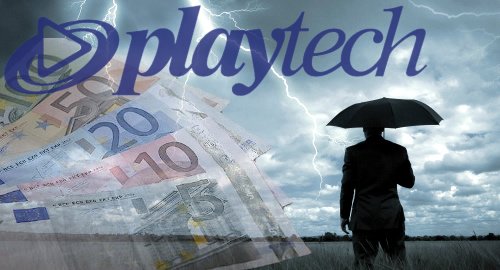
Playtech rides out pandemic storm despite Asian black market decline
Owing to Asian black market sanctions and Italian pandemic shutdowns, online poker heavyweight Playtech saw its earnings plunge 85% in the first half of 2020.
Figures published by UK-listed Playtech on Thursday indicate sales of €564 million in the six months ended June 30, down 22% from the same duration last year. Adjusted (heavy) profits dropped just 15% to €162.3 million, but profit (real, unadjusted) plummeted from €24.8 million in H1 2019 to only €4.6 million.
Playtech's business-to-business (B2B) activities posted sales dropping 13% to €229.7 million, mostly due to pandemic shutdowns in retail outlets. The halt of major sporting activity culminated in a 'huge decrease in betting income, damaging a 'solid showcase by online gambling, bingo and poker (the latter added 19 new brands to their iPoker network in H1 after the shut down of the Microgaming network).
So-called 'Core B2B transactions – aka not counting Asian black market ops – posted a 6% decline in revenues. This main downturn was led by the UK, dropping 30%, while managed markets outside the UK rose 8%.
In non-Asian uncontrolled markets, Playtech B2B activities saw sales increase by one-third, but Asian-based revenue dropped 35% to €442.3m as local governments placed pandemic restrictions. As the country's infection rate rose, the Philippines shut down its online operators, but Playtech was able to move its live casino activities to other studios, while also reaching an agreement with another Asian-facing company to fill the void.
Playtech's customer-facing (B2C) sales dropped 41% to €4253.5 million, mainly due to its italian brand Snaitech, which fell 46% to €4215.5 million despite a 37% growth in online revenue. Snai's profits were down 37% more modestly as the company cut its production expenses.
White label B2C sales rose 21% to €429.5 million, almost exclusively thanks to the uk-facing company sun bingo, which shot up 61% to €428.2 million. Sun bingo's expenses on higher ad investment soared 69% to €423.9m, though.
Other sales from the white label plummeted 82% as the firm merged some B2C marks and removed others. In May, after "significant structural deficiencies" which led to the suicide of a customer of its Titanbet and winner brands, Playtech coughed up £3.5m to responsible gambling charities.
B2C retail sports sales slipped 14% to €8.5 million, resulting in a €4.2 million drop of profits and an impairment fee of €5.4 million. Playtech emphasized that its retail operations stay "within its period of expansion," so please slack them off.
The Tradetech financial unit was H1's star performer, with sales up 123% to €87.3 million, but the group noted that this success was not expected to be replicated in the second half of the year as market turnover is "significantly smaller" than during the pandemic madness of trading.
In August, after their stellar Q1 success, Playtech was rumored to be flogging Tradetech. The company announced that it was negotiating a sale "in negotiations with a variety of parties," but those talks were at an early stage. On Thursday, Playtech gave no news on those talks.
Playtech made its US industry debut early in H2 with a contract to supply Bet365 New Jersey sanctioned platform with casino goods. Playtech says projects in other U.S. states are on file and the firm plans to expand its investment on the U.S. market during H2.
In the second part, Playtech says it's "doing well," but "caution persists" considering the confusion about the pandemic. Both July and August recorded good trade and cash production although the figures for August were below July's.





